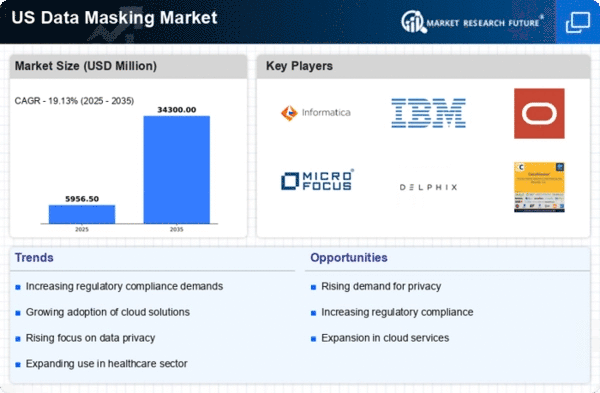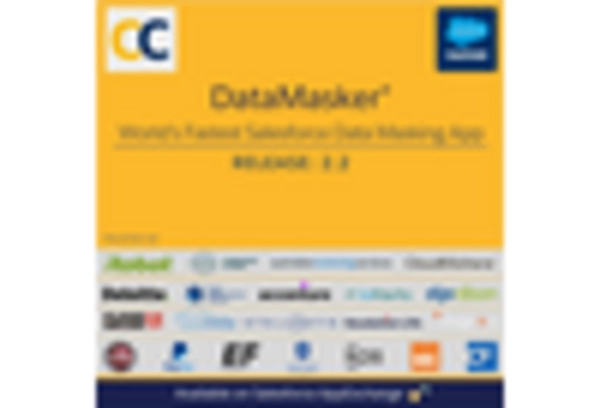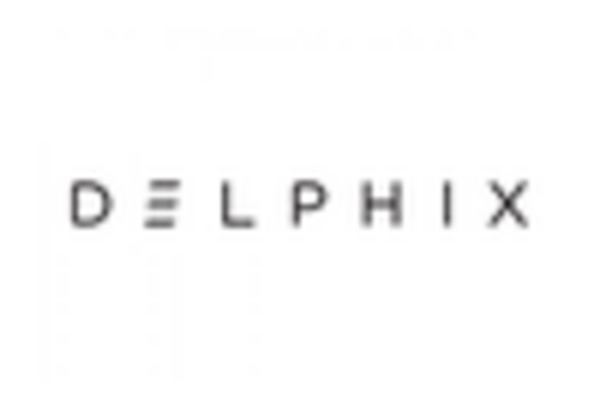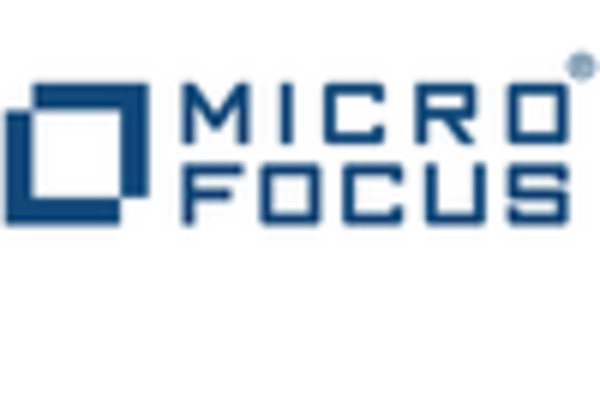Rising Data Breaches
The increasing frequency of data breaches in various sectors has heightened the demand for robust security measures, particularly in the data masking market. Organizations are compelled to protect sensitive information from unauthorized access, which has led to a surge in investments in data masking solutions. In 2025, it is estimated that the cost of data breaches in the US could reach $6 trillion, underscoring the urgency for effective data protection strategies. This trend is likely to drive growth in the data masking market as companies seek to mitigate risks associated with data exposure. Furthermore, the need for compliance with stringent data protection regulations is expected to further fuel the adoption of data masking technologies, making it a critical component of modern data security frameworks.
Increased Cloud Adoption
The rapid adoption of cloud computing services is reshaping the landscape of data management and security, thereby influencing the data masking market. As organizations migrate to cloud environments, they face new challenges related to data security and compliance. Data masking solutions are becoming essential for protecting sensitive information stored in the cloud, as they allow organizations to maintain data privacy while leveraging cloud capabilities. In 2025, it is estimated that the cloud services market in the US will reach $500 billion, further driving the need for effective data masking strategies. This trend indicates that as more businesses transition to cloud-based solutions, the data masking market will likely see increased demand for innovative security measures that address the unique challenges of cloud environments.
Growing Demand for Data Privacy
As consumers become increasingly aware of their data privacy rights, organizations are under pressure to implement measures that safeguard personal information. This shift in consumer sentiment is significantly impacting the data masking market, as businesses strive to enhance their data protection practices. In 2025, it is projected that 70% of US consumers will prioritize data privacy when choosing service providers. Consequently, companies are investing in data masking solutions to ensure compliance with privacy regulations and to build trust with their customers. The data masking market is likely to benefit from this trend, as organizations recognize the importance of protecting sensitive data while still being able to utilize it for analytics and business intelligence.
Expansion of Data-Driven Decision Making
The increasing reliance on data-driven decision-making across industries is propelling the growth of the data masking market. Organizations are leveraging vast amounts of data to gain insights and improve operational efficiency. However, the use of sensitive data for analytics poses significant risks, leading to a heightened need for data masking solutions. In 2025, it is anticipated that the data analytics market in the US will exceed $200 billion, driving demand for secure data handling practices. As businesses seek to harness the power of data while ensuring compliance with data protection regulations, the data masking market is positioned to experience substantial growth. This trend highlights the necessity for organizations to adopt data masking technologies to protect sensitive information while still enabling data utilization.
Technological Advancements in Data Security
The continuous evolution of technology is significantly impacting the data masking market, as organizations seek to adopt advanced security measures to protect sensitive information. Innovations in artificial intelligence, machine learning, and encryption are enhancing the capabilities of data masking solutions, making them more effective in safeguarding data. In 2025, it is projected that the market for AI-driven security solutions will grow by 30%, indicating a strong trend towards integrating advanced technologies in data protection. This shift is likely to drive the data masking market as organizations recognize the importance of leveraging cutting-edge technologies to enhance their data security posture. As a result, the data masking market is expected to witness increased investment in innovative solutions that address emerging security challenges.
















